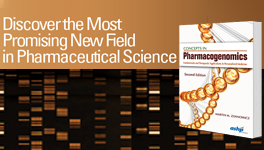Rare Diseases (Diagnosed)
- National Organization for Rare Disorders (NORD). NORD is a patient advocacy organization dedicated to individuals with rare diseases and the organizations that serve them. NORD, along with its more than 300 patient organization members, is committed to the identification, treatment, and cure of rare disorders through programs of education, advocacy, research and patient services.
- NORD Rare Disease Database: NORD’s Rare Disease Database provides brief introductions for patients and caregivers to specific rare diseases.
- NORD State Report Card: Lists key policies that are important to the rare disease community.
- Genetic and Rare Diseases Information Center (GARD) GARD provides the public with access to current, reliable, and easy-to-understand information about rare or genetic diseases
- Canadian Organization for Rare Disorders (CORD) CORD provides a strong common voice to advocate for health policy and a healthcare system that works for those with rare disorders. CORD works with governments, researchers, clinicians and industry to promote research, diagnosis, treatment and services for all rare disorders in Canada.
- Rare Diseases Europe (EURORDIS) EURORDIS is a unique, non-profit alliance of over 1,000 rare disease patient organizations from over 70 countries that work together to improve the lives of over 300 million people living with a rare disease globally.
- Global Genes Allies in Rare Disease Global Genes’ mission is to connect, empower and inspire the rare disease community.
- Rare Disease Day Rare Disease Day is the globally-coordinated movement on rare diseases, working towards equity in social opportunity, healthcare, and access to diagnosis and therapies for people living with a rare disease. Rare Disease Day takes place on the last day of February each year.
- Orphanet Orphanet is a unique resource, gathering and improving knowledge on rare diseases so as to improve the diagnosis, care and treatment of patients with rare diseases.
Rare Diseases (Undiagnosed)
- Undiagnosed Rare Disease Patients (NORD) NORD collaborated with an international group of patient organizations to address the needs of undiagnosed rare disease patients and provide joint recommendations.
- Undiagnosed Diseases Network (UDN) UDN is a research study backed by the National Institutes of Health Common Fund that seeks to provide answers for patients and families affected by these mysterious conditions.
- Syndromes Without A Name UK (SWAN UK) SWAN UK supports families affected by a syndrome without a name – a genetic condition so rare it often remains undiagnosed.
- Becoming an empowered patient: A toolkit for the undiagnosed. Global Genes created this toolkit to prepare patients to be confident and educated on how to manage the next steps in their healthcare journey.
Orphan Drug Products
- United States (US) Food and Drug Administration (FDA). Office of Orphan Products Development (OOPD) This page searches the Orphan Drug Product designation database. Searches may be run by entering the product name, orphan designation, and dates. Results can be displayed as a condensed list, detailed list, or an Excel spreadsheet.
- FDA. Designating an Orphan Product: Drugs and Biological Products. This page provides an overview of the Orphan Drug Act and how to request designating an orphan product.
- NORD. 5 Myths about Orphan Drugs and the Orphan Drug Act. NORD created this video to help dispel orphan product myths and to educate stakeholders and decision-makers about the Orphan Drug Act.
- University of Minnesota College of Pharmacy Center for Orphan Drug Research Center for Orphan Drug Research (CODR) has been improving the care of individuals suffering from rare diseases through research, increased education efforts, and by taking an active role in shaping public policy applicable to rare diseases and orphan drug development.
Midyear Clinical Meeting Presentations
- “Bridging the Advocacy Gap!” Application of Lessons Learned from Successful Non-Pharmacy Initiatives (National Organization for Rare Disorders) to Achievement of Provider Status. (2018) (Handout)

